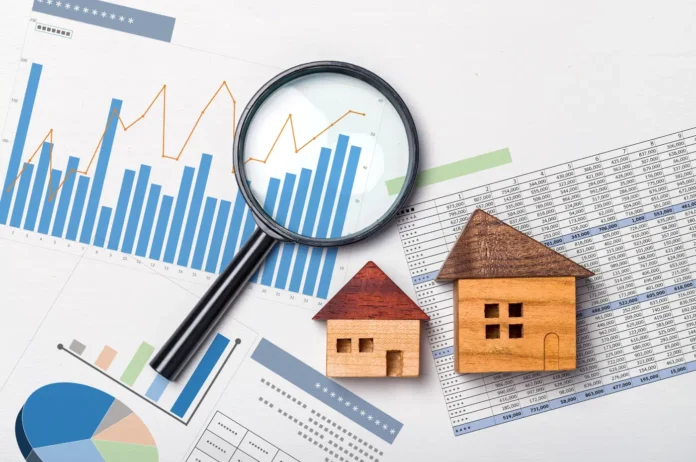The real estate sector is undergoing a profound transformation, driven by technology and data intelligence. Central to this evolution is analytics immobilier, a methodical, data-powered approach that empowers buyers, sellers, investors, and developers to make informed decisions. Whether it’s predicting market movements or managing portfolios more efficiently, analytics immobilier is revolutionizing real estate strategies across the board.
What Is Analytics Immobilier?
At its core, analytics immobilier is the application of data analytics within the property sector. It entails gathering, processing, and interpreting data related to market values, neighborhood profiles, buyer behavior, and economic factors. The objective is to move beyond intuition and guesswork, using hard evidence to drive decisions regarding real estate purchases, sales, leases, and investments.
Traditionally, real estate professionals relied heavily on personal experience or localized knowledge. In contrast, analytics immobilier leverages diverse data streams—from government records and listing databases to GIS maps and social media trends—to deliver insights that are both granular and strategic.
Real-World Uses of Analytics Immobilier
One of the most effective applications lies in property valuation. Where conventional appraisals may be slow or subjective, analytics-based valuation models use complex algorithms to analyze variables such as square footage, amenities, historical pricing, and renovations. These automated valuation models (AVMs) offer faster, more accurate pricing that reduces uncertainty and accelerates deals.
Analytics also plays a vital role in market forecasting. By examining trends like employment rates, housing demand, and infrastructure developments, predictive models can highlight where the next real estate hotspot will emerge. For instance, a district showing rising rents and nearby transit expansion could signal a prime investment zone.
In portfolio management, analytics immobilier offers a holistic view of asset performance. Investors with multiple holdings can evaluate profitability by comparing rental income, vacancy levels, and operational costs. Sophisticated dashboards and heat maps make it easy to identify strong performers and detect underutilized properties.
Why Analytics Immobilier Matters
Data analytics brings greater confidence and reduces risk in property dealings. Investments are often large and exposed to various risks—from regulatory shifts to environmental threats. Analytics helps investors anticipate and mitigate these risks. For example, analyzing geological data might flag flood-prone zones or unstable soil conditions.
It also introduces transparency into the buying and selling process. Both parties can now access comparable sales data, pricing trends, and property histories, leveling the playing field during negotiations. This open access leads to smoother transactions and better-informed decisions.
Another advantage is in marketing. Real estate companies can segment audiences using demographic, behavioral, and geographic data, then craft campaigns that directly appeal to each group. If young professionals are searching for energy-efficient condos downtown, agencies can adjust their messaging to highlight those attributes and capture attention more effectively.
The Technology Behind Analytics Immobilier
Several digital tools support the application of analytics immobilier. GIS platforms offer visual context to property data, allowing users to overlay zoning laws, traffic data, and crime rates on detailed maps. This aids in everything from site selection to development planning.
Machine learning enhances decision-making by processing enormous datasets and uncovering hidden patterns. These systems might find that homes near tech campuses or new entertainment districts tend to appreciate faster than others—valuable intel for developers and investors alike.
Cloud infrastructure from services like Google Cloud and AWS powers real-time data processing. Business intelligence tools such as Tableau and Power BI allow stakeholders to build interactive reports, spot trends, and run simulations with just a few clicks.
Obstacles to Implementation
Despite its potential, analytics immobilier faces challenges. Chief among them is data reliability. If the input data is outdated or incomplete, the resulting insights could be misleading. Ensuring quality, accurate data is foundational to effective analytics.
Another hurdle is the lack of analytical skills in traditional real estate teams. Bridging this gap may require hiring data professionals, investing in employee training, or collaborating with analytics firms.
Privacy is a growing concern as well. Collecting personal or behavioral data tied to property usage can raise legal and ethical issues. Companies must comply with laws like GDPR to avoid penalties and build trust with clients.
What the Future Holds
Looking ahead, analytics immobilier will only become more sophisticated. Artificial intelligence will sharpen forecasting abilities, offering predictive insights in real-time. Blockchain technology could add a layer of security and transparency to property records, making title verification and ownership history tamper-proof.
Smart building technology and IoT devices will feed real-time data into management systems, providing insights on energy consumption, maintenance needs, and tenant behavior. This will allow for more responsive and efficient property operations.
Digital twins—virtual representations of actual buildings—could also emerge as a key tool. These replicas would enable real-time simulations and testing, helping developers and investors make better-informed design and planning decisions.
Final Thoughts
Analytics immobilier is reshaping real estate into a forward-thinking, data-centric industry. By tapping into robust data systems and tools, professionals can make sharper, quicker, and more strategic decisions. From identifying undervalued neighborhoods to optimizing marketing and asset performance, the benefits are vast.
To make the most of analytics immobilier, however, firms must address challenges related to data quality, talent acquisition, and regulatory compliance. As adoption grows and technology evolves, one thing is clear: the future of real estate will be powered by data.
